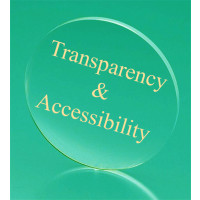State Legislature Gets a “D” for Transparency

Just about the only thing transparent in California state government is its lack of transparency, a point just made by at least a couple of good-government groups during Sunshine Week.
A report card published by the nonprofit, nonpartisan Sunlight Foundation gives the state Legislature a “D” overall for how it makes its data available to the public. The rankings were based on six categories: completeness, timeliness, ease of access, machine readability, standards and performance.
California received its best grade for “completeness” in having information on bills, legislators, votes and committees. Access to that information was another story. The state Legislature received an average score for updating its data daily, but, didn’t update throughout the day as some states do. Ease of access was below average and notice was taken that the site was “rendered entirely inoperable without JavaScript” turned on.
Lots of the state’s data was in machine readable formats, like XML, JSON,
That was bad enough to get them an overall “D,” along with five other states rated by the foundation. Eight states received the top grade, 11 got a “B,” 20 netted a “C,” and six flunked. Texas, Kansas and Washington were the best of the best, and Massachusetts was the worst of the worst.
The foundation’s report card sounded a theme similar to that explored by California Forward in its report, “The State of Transparency in California, 2013.” While noting that California government had its champions of transparency, like State Controller John Chiang, the report also had a number of bones to pick about availability of information at both the local and state level.
Among its complaints: Critical property tax information was scattered among a dozen or so entities; budget information is released in a form that only experts can understand; lawmakers take up legislation without even a 72-hour gestation period for public review; and bills are amended at the last moment in a process known as “gut and amend” that keeps even lawmakers purposefully in the dark.
Gut and amend takes a bill on one subject, strips out its content and substitutes language of an entirely different bill. It is a favorite stunt used in the frantic last moments of a legislative session.
Both reports share a common view that available technology could greatly enhance transparency if the powers that be wanted to use it.
“Technology is not a cure for the accountability issues in California, but it is the most expedient vehicle for engaging the public and encouraging honest evaluation of its performance,” according to California Forward.
–Ken Broder
To Learn More:
California Legislature Gets “D” in Online Open Records Report (by Torey Van Oot, Sacramento Bee)
Open States: Transparency Report Card (by James Turk, Sunlight Foundation)
The State of Transparency in California: 2013 (California Forward)
There’s Little Sunshine in California Government, Reports Find (by Brian Joseph, Orange County Register)
- Top Stories
- Controversies
- Where is the Money Going?
- California and the Nation
- Appointments and Resignations
- Unusual News
- Latest News
- California Forbids U.S. Immigration Agents from Pretending to be Police
- California Lawmakers Urged to Strip “Self-Dealing” Tax Board of Its Duties
- Big Oil’s Grip on California
- Santa Cruz Police See Homeland Security Betrayal in Use of Gang Roundup as Cover for Immigration Raid
- Oil Companies Face Deadline to Stop Polluting California Groundwater





